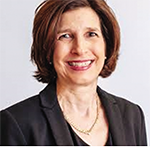The outbreak of the SARS-CoV-2 virus is disrupting rheumatology clinics and practices all over the world. In the U.S., many providers are turning to telemedicine to care for their patients, but struggles remain. Philip A. Waller, MD, who practices at Accurate Clinical Research, Houston, spoke with The Rheumatologist about how the pandemic is affecting his…
Search results for: Telemedicine

Providing the Best Care: Rheumatologists & Professionals Adapt to COVID-19
The new landscape for rheumatologists includes telemedicine, kids out of school and infection-prevention protocols. During the current pandemic, the practice of medicine, research and daily lives are changing to keep providers and patients safe…

Rheumatology in the Age of COVID-19: HCQ Shortages Driven by Small, Nonrandomized Study
No data exist for prescribing hydroxychloroquine for post-exposure prophylaxis, and we should not prescribe it for this indication.

Tactics for Bolstering the Rheumatology Workforce
ATLANTA—The rheumatology profession faces a severe shortfall of practitioners that threatens the ability to address patients’ needs. “Even if we doubled the number of positions for fellowship training, we wouldn’t meet the increasing demand on our workforce,” said Marcy B. Bolster, MD, associate professor of medicine at Harvard Medical School, Boston, and director of the…

Tele-Rheumatology Offers Lots of Benefits
ATLANTA—With growing demand for access to rheumatologists in rural areas, a shortage in the number of rheumatologists and the ability to use technology as a bridge to patients in remote areas, telemedicine seems like a smart option. And it certainly can be, experts said at a 2019 ACR/ARP Annual Meeting session in November. But a…

Ellen M. Gravallese, MD, Begins ACR Presidency
As Ellen M. Gravallese, MD, begins the ACR presidency, her goals include workforce expansion, improved access to care and support for members in all areas of practice.

How to Improve Rheumatologist-Hospitalist Communication & Access
The traditional model for subspecialist consultations on hospitalized patients by outpatient-based rheumatologists may seem straightforward. Hospitalists (the inpatient specialists who now manage most in-hospital medical care in the majority of U.S. hospitals) typically call upon the rheumatologist’s expertise for joint swelling and a rash or fever of unknown origin, says Lianne Gensler, MD, of the…
Practice Matters: New Workshop Will Provide Insights into Practice Management at the 2019 ACR/ARP Annual Meeting
Technology, billing, regulations—how do rheumatologists manage the business side of their practices in an ever-changing environment? During this year’s Annual Meeting, a practical, full-day workshop will offer attendees the tools to thrive in today’s healthcare business landscape…

Interstitial Lung Disease: What Rheumatologists Need to Know
In the past decade, the treat-to-target concept has gained broad acceptance. Both the ACR and European League Against Rheumatism (EULAR) management recommendations include adding biologic therapies to the treatment regimen for rheumatoid arthritis (RA) patients who do not sufficiently respond to methotrexate monotherapy. “What EULAR says is that if [methotrexate use fails], you should essentially…

Arizona Project Trains Rural Clinics to Triage & Refer Rheumatic Disease Cases
Dominick Sudano, MD, an assistant professor at the University of Arizona and rheumatologist at Banner University Medical Center, Tucson, Ariz., knows how tough it is for patients living in remote areas to obtain a rheumatology consultation. “It’s not unusual for patients living in rural areas of Arizona to wait four to six months for a…
- « Previous Page
- 1
- …
- 15
- 16
- 17
- 18
- 19
- …
- 21
- Next Page »